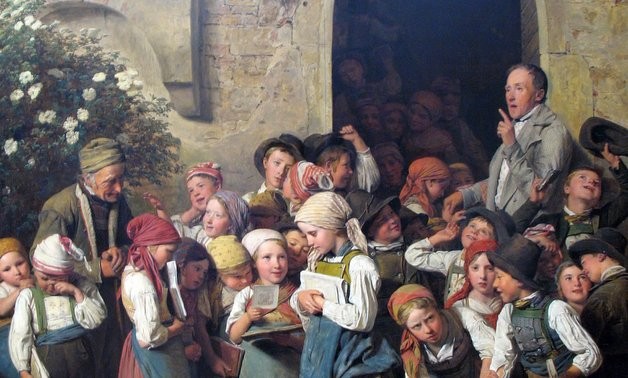Some historians of philosophy argue that in the common enterprise of thought, pragmatism is the United States’ only significant contribution. When it comes to philosophic novelties, improvements, and developments, it appears that American culture is fit to produce only the most uninspiring of legacies: “When you do something, take into account what works.” The effect of this realization is something like that produced by slaving through hours of Myers Brigg indicator tests only to discover that you are what the profiles classify as “Eminently Efficient” or “Supremely Serviceable”—perhaps a good adjective to appear in the fourth paragraph of a litany of accolades but as the first and only it leaves one feeling somewhat culturally sterile.
Now whether Americans are willing to admit it or not this cultural posture has a way of coloring our thought. Americans are corporately the intellectual heirs of pragmatists and industrialists. The American mind (while I admittedly paint in broad brushstrokes) tends to seek the meaning of conceptions in their practical bearings.
Given this cultural predisposition, the purpose driven American is sometimes brought face-to-face with certain manifest contradictions. Here, we’ll take a brief look at just one: liberal arts. In a country renowned for its constructive practicability, it seems strange that considerable emphasis is still given to speculative sciences, that is, disciplines dedicated to the order of the mind or morals or language and not to a concrete product. Whereas many European countries have in place vocational, technical, and apprenticeship arrangements into which a considerable number of students are diverted at surprisingly young ages, the American system continues to dedicate considerable attention, capital, and, most importantly, pupils to the liberal arts. In a sputtering economy and with a hyper-inflated education bubble, is it even responsible to let so many students devote their time and substance into what may be an empty pursuit? With the stakes as high as they are and given the bewildering number of variables, I do not presume to attempt a complete solution but rather offer some small defense of “free study.”
The name “liberal arts” derives from its origin as the study proper to a free (liber) man. This course of study marked him as moving in a world beyond the merely servile. While consciously standing in contradistinction to vocational study, the liberal arts do not imply that these pursuits are to be despised. Quite clearly, man must learn to “fill the earth and subdue it.” Bread must be won that mouths may be filled.
The liberal arts testify to man as “more than a mere breadwinner,” carrying the connotation that man transcends the merely animal: he is a thinking animal. The liberal arts are ordered to the cultivation of the interior spiritual world of man. In recognition that man is a composite world of spiritual and material elements, the liberal arts seek to develop that which is highest in man, that to which and for which the material component is ordered. One might say that the liberal arts aim beyond the making of products or the ongoing pursuit of material sustenance to the making of men.
Liberal arts are pursued with the recognition that human nature has an end, that is, an arrival of sorts, a fixed point on man’s horizon representing his ultimate perfection. Furthermore, man has discovered that the road map to the attainment of this end is written in his nature. The soul of man by its very capacities and potentialities grasps and gropes for its completion, a completion that draws on all his stores. It stands to reason then that given this trajectory of existence and its terrible import, it is incumbent upon man to develop his capacities in accord with their inner logic. In the case of his capacity of reason, man’s highest power, this entails the pursuit of truth. “All men by nature desire to know,” and a liberal arts education leads out from man’s potential an ordered adherence to reality as it is encountered in truth. Though it may fail to produce immediate tangible fruit or admit of metrical output analysis, liberal arts have their own proper place in the formation of man and consequently of his actions, for as a man is, so does he act. And ultimately, the question is one of efficacy: Is man destined to be efficient or is he destined to be complete, fully actualized? The study of Liberal Arts reminds us of the important truth of the latter.
✠
Image: Ferdinand Georg Waldmüller, After School







